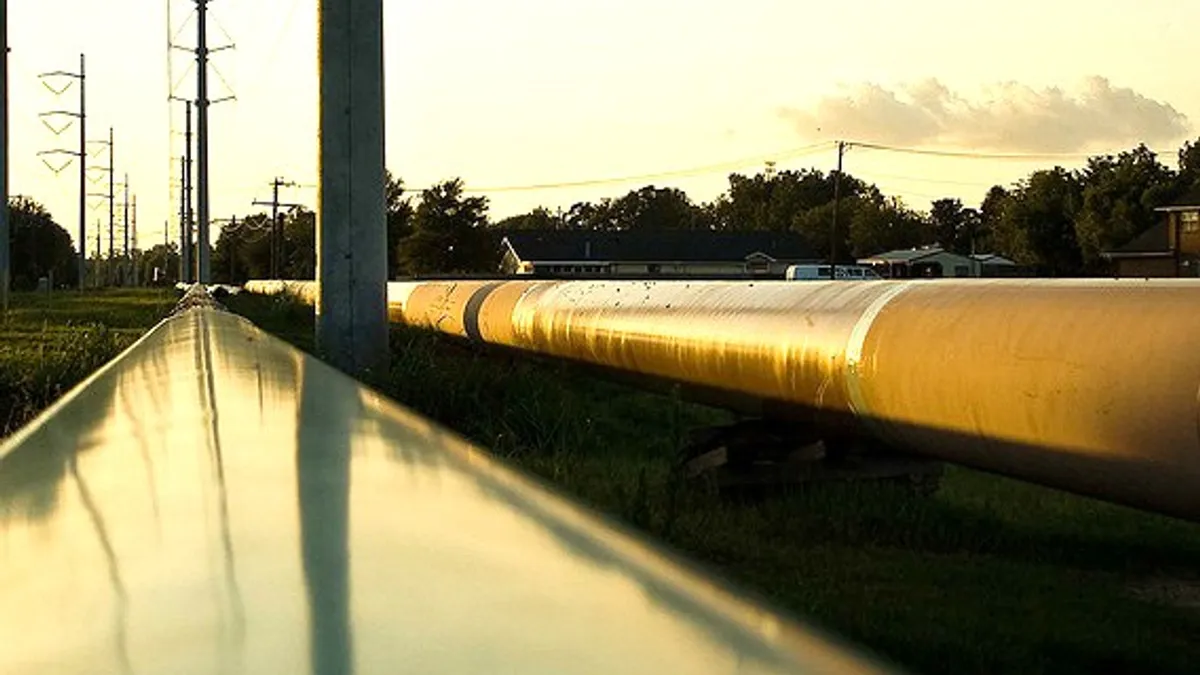Dive Brief:
- The state of Ohio has filed a lawsuit against Rover Pipeline LLC, claiming the pipeline company "illegally discharged millions of gallons of drilling fluids into the state's waterways, and have harmed wetlands in Stark County that "require the highest level of protection" while building its natural gas pipeline, WKSU reports.
- The Ohio Environmental Protection Agency in September proposed a $2.3 million fine related to Energy Transfer Partners' construction of the Rover Pipeline, but the company has demurred. The lawsuit seeks civil penalties of $10,000 per day for each violation.
- ETP issued a statement in response to the lawsuit, saying it has cooperated with the Ohio Environmental Protection Agency "for the past six months to resolve this matter in a way that is satisfactory to all parties involved."
Dive Insight:
Ohio's EPA has been unable to reach an agreement with ETP over water quality issues associated with construction of this natural gas pipeline, and now the state's Attorney General is asking the court to halt the company from discharging waste into wetland, and to force ETP to pay millions in fines.
The suit alleges that Rover's construction "harmed pristine wetlands in Stark County that require the highest level of protection," and caused the degradation of state waters by "discharging pollution in the form of sediment-laden stormwater to Ohio's waters on multiple occasions."
Radio station WKSU received a statement from ETP, which said, has "worked cooperatively with the Ohio EPA for the past six months to resolve this matter in a way that is satisfactory to all parties involved. We are therefore disappointed that they have resorted to litigation when Ohio EPA has acknowledged publicly that Rover has complied with all applicable environmental laws."
The company said the lawsuit would not impact the pipeline construction schedule. The pipeline is expected to be complete and operating by March of next year.
The Rover pipeline will transport up to 3.25 billion cubic feet/day of natural gas to markets in the Midwest, Northeast, East Coast, Gulf Coast and Canada. The system will gather gas from processing plants in West Virginia, Ohio and Pennsylvania for delivery to the Midwest Hub near Defiance, Ohio.















